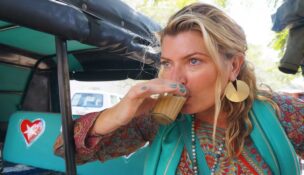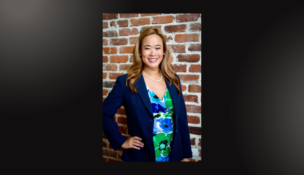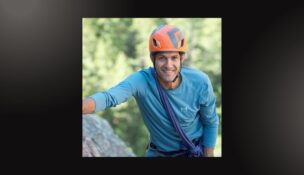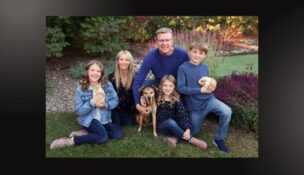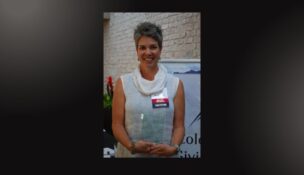CEO of the Year finalists, R to W
The list from Mary Rhinehart to Ben Wright
Nora Caley //November 11, 2016//


CEO of the Year finalists, R to W
The list from Mary Rhinehart to Ben Wright
Nora Caley //November 11, 2016//

Mary Rhinehart
Johns Manville
Mary Rhinehart started working at Johns Manville right after she graduated from college, bringing skills to the table she had developed at a young age.
“The ability to read people, to put them in the right roles, to challenge them to push themselves and their teams, those are the kinds of leadership skills that have really helped me, and JM, to succeed,” she says.
She adds that JM, like most businesses, has an ever-changing, cross-generational work force, and each generation has something positive to offer. “The key is to have a leadership style that is flexible enough to inspire people from all different backgrounds,” she says. “This ‘diversity of thought’ approach helps us make sound business decisions based on a variety of perspectives.”

Ryan E. Ross
Urban Leadership Foundation of Colorado
When Ryan E. Ross became CEO of the Urban Leadership Foundation of Colorado in 2015, he had previously served as program director. Still,
there are always some surprises when leading a nonprofit. “The biggest surprise is the truth behind the org chart,” he says. “I had to make sure I understand all of those roles before looking to fill those with volunteers or staff to understand every aspect of what we do and what our needs are holistically.”
Ross had previously served as Dean of Student Development and Retention at the Community College of Denver (CCD). In January 2015, the Colorado Black Chamber of Commerce Foundation changed its name to the Urban Leadership Foundation of Colorado with the mission to prepare the next generation of leaders.

Dave Ryan
Big Brothers Big Sisters of Colorado
Dave Ryan, who previously worked in software and venture capital, is still in awe of the stories that staff, volunteers and clients tell about helping kids overcome adversity and how mentors gain as much from the relationship as at-risk kids. One day, two women, formerly a mentor and “little,” (as the kids are known), stopped by his office and started sharing accounts of how they’ve known each 30 years and how life-changing the relationship has been.
“That was when I thought, ‘Wow, I wasn’t getting this in software,’” Ryan says. “In venture capital no one was crying in my office.”
Things are changing, including new schools signing up and mentors and littles communicating by email, but the best part of the job has remained the same. “You know you are changing not just lives, but communities,” he says.

Thaddeus Shrader
Bonsai Design
Zip lines are more than a thrilling resort activity. The courses “open the door for a cross section of the community to safely explore and experience places in nature previously accessible only to highly skilled, technical experts,” says Thaddeus Shrader, a former commercial pilot who joined Grand Junction-based Bonsai Design in 2008. The company builds zip lines and canopy tours in Vail, Royal Gorge, Castle Rock, throughout the rest of the country and worldwide.
Shrader says the best thing about running his aerial adventure company is having the opportunity to curate an amazing team that takes his “crazy ideas” and brings them to life.
“Almost every project reveals a special challenge mid-stream, requiring creativity, teamwork and a passion to succeed against all odds,” he says. “We have some of the industry’s brightest and hardest-working at Bonsai, and it gives me a feeling of pride and a sense of responsibility.”

Jeff Storey
Level 3 Communications
Jeff Storey was named president and CEO of Level 3 Communications, a global telecommunications company offering data, security, video, voice and unified communications solutions, in 2013. One of his successes has been to prioritize an organization-wide focus on the customer experience, enabling his team to respond more effectively to the complex demands of the market.
Storey says the biggest challenge this and every year is being the best person he can be.
“People follow others because they either respect and trust their leader or because they fear him/her,” he says. “Employees have the capacity for enormous differential commitment, meaning they can give what's required or they can give fully and completely, invest themselves and personally identify with the success of the company. To earn that differential commitment and effort, it requires trust and respect. To earn trust and respect requires being a good, fair and authentic person.”

Ben Wright
Velocity Global
When the Berlin Wall fell, Ben Wright was just a kid watching the event on a small TV in his family kitchen. “At that moment I realized we were all global citizens and the more we can reach across borders, the more peace will prevail,” he says.
Wright later worked for a firm specializing in legal operations setups internationally. He noticed, “Company executives kept saying ‘agile,’ ‘lean,’ and ‘flexible;’ but I couldn't rationalize their desires with the old way of international expansion,” says Wright, who was originally trained as a CPA. So he brought new-school sharing economy principles to international business services. Wright launched Velocity Global, which offers Foreign Subsidiary as a Service (FSaaS), and helps companies expand globally, leveraging the company’s infrastructure in 180 markets. He offers a business travel tip: Stop checking emails and take a client or partner out to dinner.
“Whatever is happening back at HQ can wait, but who knows when you'll be back in that city again,” he says. “You'll establish longer term and more meaningful local relationships over time.”







